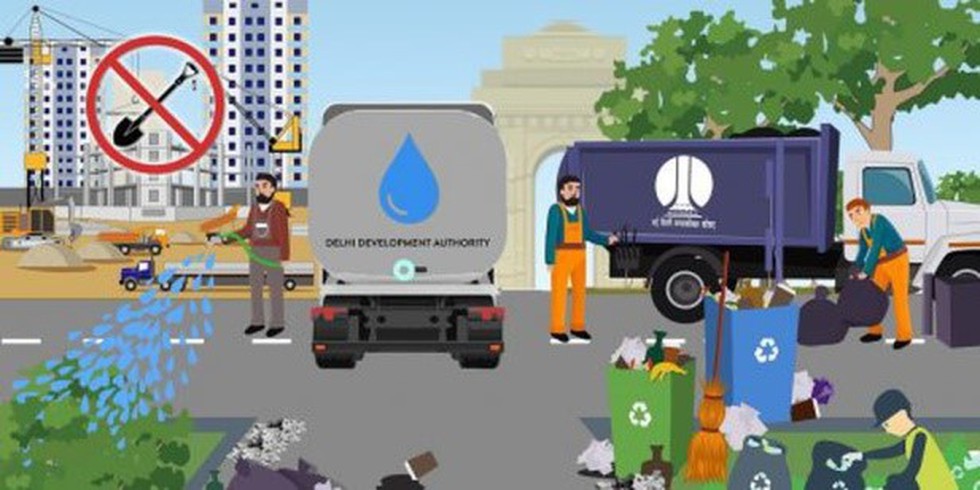About Graded Response Action Plan:
- It is a set of emergency measures that kick in to prevent further deterioration of air quality once it reaches a certain threshold in the Delhi-NCR region.
- The GRAP was first notified in January 2017 by the Ministry of Environment, Forest and Climate Change.
- Implementation:
- The Commission for Air Quality Management (CAQM) has constituted a sub-committee for the operationalization of the GRAP.
- This body includes officials from the CAQM, member secretaries of pollution control boards of Uttar Pradesh, Delhi, Haryana, Rajasthan, the Central Pollution Control Board, a scientist from the IMD and one from the IITM and Health Advisor.
- The sub-committee is required to meet frequently to issue orders to invoke the GRAP.
- The orders and directions of the CAQM will prevail in case of any conflict between directions issued by the State governments and the CAQM.
What are the revised measures?
- Stage I – ‘Poor’ Air Quality (AQI ranging between 201-300): Enforce NGT / Hon’ble SC’s order on over aged diesel / petrol vehicles.
- Stage II - 'Very Poor' (AQI 301-400): Rigorous actions to combat air pollution at identified hotspots in the region.
- Stage III - 'Severe' (AQI 401-450): Impose strict restrictions on BS III petrol and BS IV diesel four-wheelers in certain areas and may suspend physical classes in schools for primary grade children up to Class 5.
- Stage IV - 'Severe Plus' (AQI greater than 450) : When the AQI exceeds 450, four-wheelers registered outside Delhi, except for electric vehicles, CNG vehicles, and BS-VI diesel vehicles, will not be allowed to enter the city.
